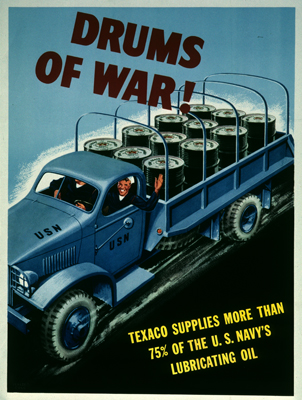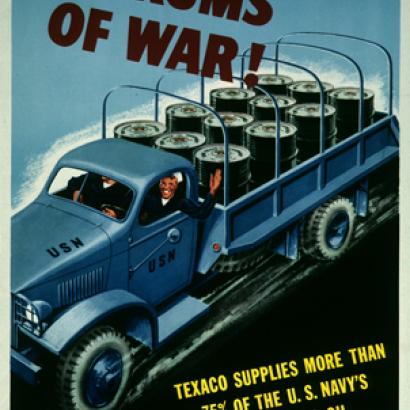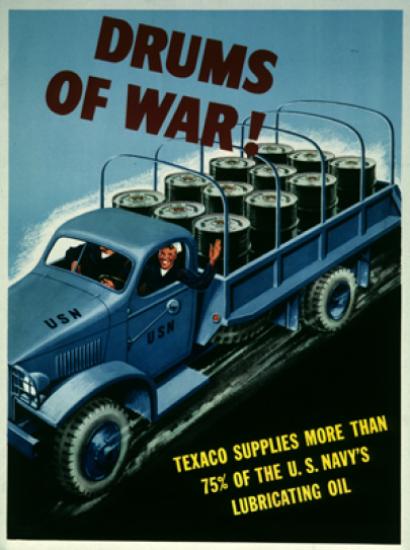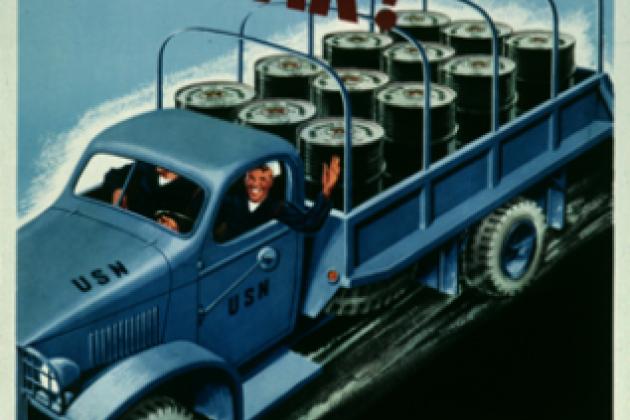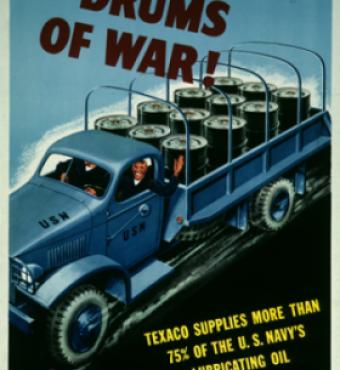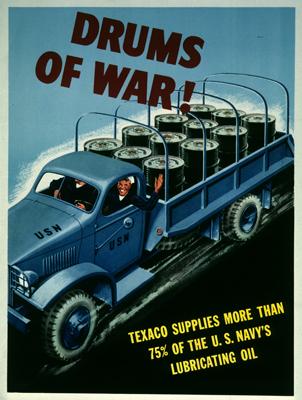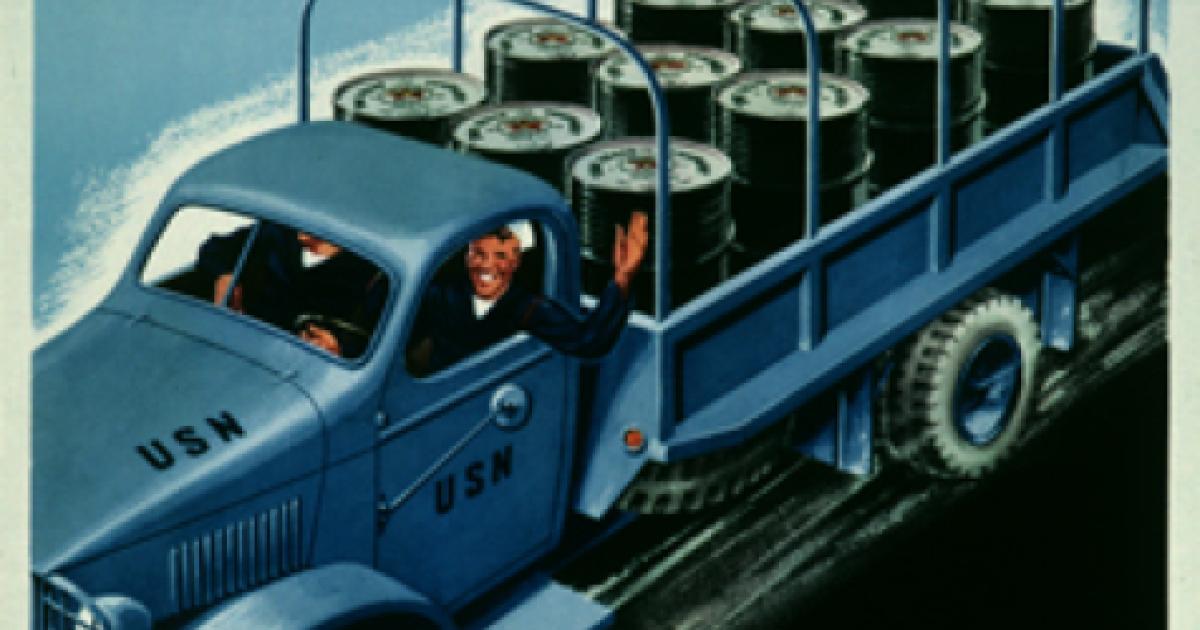- Energy & Environment
- History
- Military
Over the past decade, we have seen an astonishing recovery of America’s position as a major producer of fossil fuels. In the case of natural gas, the reserves in North America appear extensive enough to sustain most of the energy demands of the American, Canadian, and Mexican economies and still export substantial amounts of that crucial energy well into the next century. The outlook for crude oil does not appear to be quite so favorable; yet, there is no doubt that with the exception of Russia, the position of the United States is the most favorable of all the major powers in its access to sources of crude oil that are not subject to disruption by troubles in the Middle East or elsewhere. Obviously, the decrease in the dependence on foreign sources of energy has already had a major impact not only on the U.S. economy, but on its strategic situation as well. That situation appears set for the coming decades.1
This change, the result of fracking and Canada’s extensive development of Alberta’s tar sands, represents one of the most important changes in America’s strategic position in the past fifty years. Nevertheless, it is somewhat ironic that this situation—not only beneficial to America’s economic situation, but to poor and working class Americans as well—would elicit violent opposition not only to fracking, but to the pipelines designed to carry Canadian oil to refineries in the United States, from those who have consistently opposed the commitment of U.S. military forces to the troubles in the Middle East and U.S. efforts to stabilize that region. Yet, once again we have seen an American president, who has steadfastly opposed the commitment of American ground forces to the Middle East throughout his political life, veto the Keystone pipeline that would carry Canadian crude to American refineries.
Admittedly, the United States has intervened extensively in the Middle East since Saddam Hussein launched the Iraqi Army into Kuwait in August 1990, and not always with success. The commitment of U.S. military forces by President George H. W. Bush to Saddam’s invasion of Kuwait did in fact rest, as its critics in Washington and elsewhere suggested at the time, in a desire to insure that a substantial portion of that region’s vast oil reserves remained outside of the control of a vicious dictator. It represented the use of America’s overwhelming military power to the protection not only of its economic interests, but those of a globalized economy that was already emerging before the Soviet Union’s collapse. Thus, the motivations for Desert Shield and Desert Storm were much more than a quixotic effort to restore Kuwaiti independence, but one that had the larger economic interests of the United States at its heart.
Over the past several years, the considerable increases in U.S. and Canadian oil production have resulted in a significant drop in crude oil prices, which has had a major impact on the strategic position of the United States. It has led some analysts to suggest that the Saudis have continued their production levels as a means of discouraging the fracking efforts in U.S. shale oil fields.1[1] Such arguments, however, largely miss the context of Saudi strategic interests. It is far more likely that the Saudis, as with their increased production in the mid-1980s, are aiming their efforts to keep oil prices low, not as an effort aimed at decreasing the incentives for fracking in the United States, but rather at hurting Iran’s economy, their immediate political and religious opponent in the region.
Nevertheless, in the case of the present, it is the perturbations in the American markets, caused by fracking, that have driven the price of natural gas down in the United States and crude oil prices down throughout the world. In the latter case it has had a direct and significant impact on Russia’s economic and—in the long-term—political stability. This was indeed an unintended effect, but it certainly fits within America’s long-term, global strategic interests. While the decline in crude oil prices has not been the cause of Russia’s appalling behavior in the Ukraine, it has certainly not made Putin and his thugocracy more willing to consider altering their course. Nevertheless, it has certainly decreased Russia’s ability to manipulate its European customers and significantly damaged its economic strength.
It is likely that once American industry acquires the plants necessary to store and then ship by sea the vast quantities of natural gas already available throughout the United States to Asia and Europe, we will see a similar drop in natural gas prices in the markets of those essential players in the world economy. That too will have a strategic impact, for example, on the ability of the Russians to blackmail their European neighbors over the continued supply of Russian natural gas, just as the drop in crude oil prices has had a negative impact on Russia’s present economic and strategic situation. In every sense then, the extensive development of North American oil and gas deposits has had and will continue to shape the economic and strategic environment in a fashion that is favorable to the interests of the United States and its allies in both Asia and Europe. Nevertheless, one should not ignore the possibility that Russia’s economic difficulties, caused by the decreasing value of its exports of crude oil and gas, might well make Putin and his crew even more of a truculent and irascible threat to the stability of Eastern Europe. Their room for maneuver, unless they are willing to take extraordinary risks, has, however, significantly decreased.
For some, this present situation has suggested that the United States has now achieved a position where it can safely ignore, or minimally intervene, in the troubles that seem to be exploding in the Middle East or with Russia’s increasing baneful interference in the affairs of Europe. Unfortunately, that is not the case. One of the drawbacks of a globalized economy is the fact that during a period of crisis or crises, it would be virtually impossible to separate the intricate balance of economic and financial transactions that occur throughout the world. Just as the collapse of the Danube frontier in the third century AD before the onslaught of the Goths resulted in a devastating series of reverberations in a Mediterranean economy that reached from Northern Britain to the southern shores of North Africa, the potential for a massive religious war between Shi’a and Sunni could have the same kinds of damaging effects.
Such a conflict is in the cards unless the United States is willing to use its military, economic, and political power to bring a reasonable amount of stability, particularly in the Middle East. The Roman Empire’s economic stability depended on the ability of the legions to hold the barbarians at bay north of the Danube and Rhine Rivers and away from the Empire’s economic heartland. Today, the economic heartland of the globalized world does not have a geographic frontier as such; rather, its frontier lies in the ability of the globalized economy to access the energy that it requires. And that depends at present and for the foreseeable future on the ability of American military power and that of its allies to maintain reasonable access to the Middle East’s oil, even given the increasing production of gas and crude oil in North America. The destructive impact of a religious civil war within the Islamic world between the Sunnis and the Shi’a could drive oil prices to extraordinarily high levels. The oil and gas production of North American sources would undoubtedly shield Americans to a certain extent in such a case. Nevertheless, the breakdown of peace throughout much of the Middle East in the external world would still have profoundly disturbing effects on the global economy as well as that of the United States. An interdependent, globalized world depends on access to raw materials and particularly to fossil fuels, and quite simply that means the United States will have to be willing to commit military forces, including ground forces, to keeping a rough stability in those areas where the world’s greatest oil reserves lie, namely the Middle East. In the long-term, alternative sources of energy may mitigate that dependence, but it will not remove that dependence, at least in this century.
The bottom line is that the United States has a deep strategic interest in maintaining a reasonable level of stability in the globalized world. Its relative—and increasing—independence of fossil fuels (including coal) will provide it with a significant cushion to mitigate some of the impact of major disruption in the world’s supply of crude oil, but it will not decrease the absolute requirement to support the access of the globalized economy to Middle Eastern supplies of energy.[1
1. The new economics of oil: Sheikhs v shale,” The Economist, December 6, 2014.







